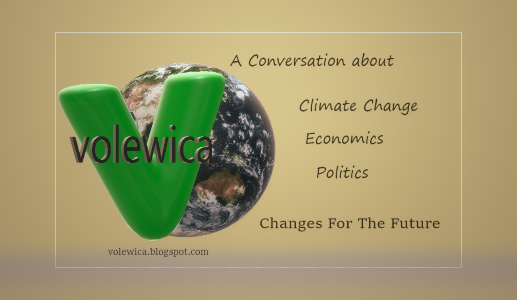Just as with the lag between the midday peak of insolation and the afternoon peak in temperatures, and the summer solstice peak in June/December (depending on hemisphere) and the temperature peak one or two months later, so it has been believed that even if we cut emissions to zero, global temperatures will continue rising for several more decades because of lags built into the system.
Recent research suggests that this might not be the case, which is good news, if true. Not, note, because there aren't lags, but because 'carbon sinks' (like the sea) will absorb some of the CO2 from the atmosphere. And anyway, temperatures will continue to rise "for a couple of decades."
From The Guardian:
For many years it was assumed that further global heating would be locked in for generations even if emissions were rapidly cut. Climate models run by scientists on future temperatures were based on a certain carbon dioxide concentration in the atmosphere. If this remained at the current high level there would be runaway climate disaster, with temperatures continuing to rise even if emissions were reduced because of a lag time before greenhouse gases accumulate in the atmosphere.
But more recent understanding of the implications of getting to net zero emissions is giving hope that the warming could be more swiftly curtailed.
Should this be achieved globally, “surface temperatures stop warming and warming stabilizes within a couple decades,” said Michael Mann, a climate scientist at Pennsylvania State University. “What this really means is that our actions have a direct and immediate impact on surface warming. It grants us agency, which is part of why it is so important to communicate this current best scientific understanding.”
Scientists have now factored in the dynamism of the Earth’s natural systems, whereby stopping emissions would actually see atmospheric CO2 content go down due to the huge carbon absorption capacity of oceans, wetlands and forests. Mann likens it to filling up a sink with water with the drain partially open – the water level will still rise due to the incoming water but if you reduce the water flow it will drop due to the drain remaining open.
“This falling atmospheric CO2 causes enough cooling to balance out the warming ‘in the pipeline’ due to slow ocean heat uptake, and global temperatures remain relatively flat after net-zero emissions are reached,” said Zeke Hausfather, a climate expert at the Breakthrough Institute. “The main takeaway for me is that this is good news, because it means that how much warming happens this century and beyond is up to us.”
This would give civilization time to adapt to the changes or come up with technological fixes. “At the moment we are changing the temperature a hundred times faster than what happened in the last ice age,” said Andrew Dessler, a climate scientist at Texas A&M University and co-author of the paper, published in Nature Climate Change. “An extra degree in a few hundred years is far less damaging than a degree in a few decades. The timescale is important.”
[Read more here]
 |
| Source: The BBC |

No comments:
Post a Comment